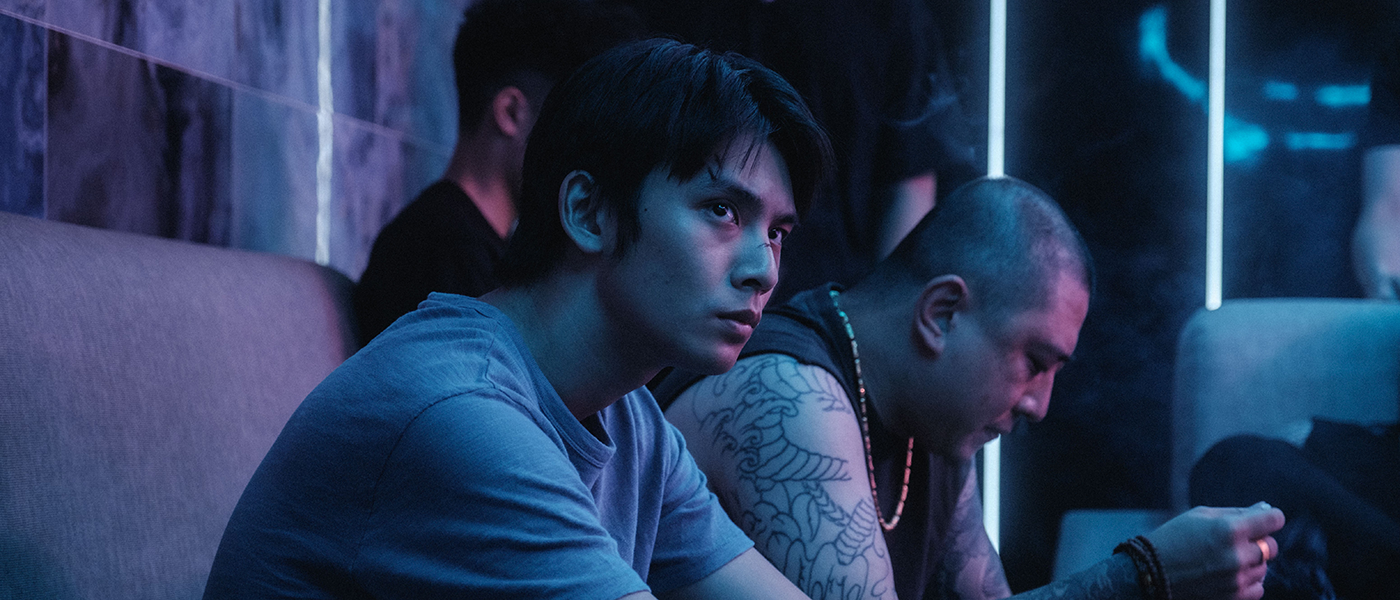About Locust
By Olivier Pélisson

By Olivier Pélisson
An elegant mise-en-scène. Brilliant storytelling. And charismatic actors. A first feature film that is both taut and lyrical. Blending romanticism and genre to a journey of initiation, Keff brings his personal artistic touch to his homeland. Realism and pop aesthetic go hand in hand to tell a story of survival, violence, hearts racing, and youths roaring with their thirst for life. A love letter to Taiwan and cinema.
KEFF’s interview
« I moved back to Taiwan in the summer of 2019, right when the Hong Kong protests were happening. It was a strange time to re-discover my homeland (my parents are both born-and-raised in Taiwan, and raised me as a Taiwanese), especially with fresh, third-culture-kid eyes: I could experience, observe, and process things as a Taiwanese, but also as an outsider, seeing things from both perspectives.
After spending a year or two living all over the island and hearing hundreds of Taiwanese stories, particularly from the youth, I felt that there was an opportunity and great urgency to tell these stories on their behalf, while simultaneously trying to answer a lingering, burning question in my chest : “Why didn’t more Taiwanese seem to care about what was happening in Hong Kong at the time ?” Locust is the result of this experiment, and I think the search for answers led us deep into discovery within Taiwan’s soul, unearthing startling revelations, connections, and even bigger, universal questions about power, exploitation, and human nature.
I love genre because there’s something very punk and rebellious about its excess/tastelessness and general non-conformity that resonates with me and who I am. I often end up challenging the status quo and provoking my audience in some way with my work, so it’s very comfortable to lean into genre and all its conventions, especially when I want to hyperbolize and get certain feelings or points across in a more incisive, interesting manner. I dig the typical Hong Kong triad films, of course, but I’m actually more influenced by Hong Kong’s romanticism than their action thrillers.
The aesthetic key guiding principle is that we let Taiwan, its colors, its sounds, and its faces be the center of attention, and stayed out of the way as much as possible. We tried to faithfully serve the world, the characters, and the story, avoiding creative choices that felt like we were showing off or being self-congratulatory about our contributions. We even specifically looked for lenses that had minimal-to-no flaring, distortion, or breathing.
I’ve met so many young, talented Taiwanese voices, brimming with freshness and life, eager to tell new, amazing stories only they can tell. They just badly need the guidance, resources, and opportunity to do so. I’m hoping films like Locust can help attract more foreign interest and involvement in Taiwanese films, but the support has to continue to come from within Taiwan as well : producers, government agencies and financiers/production companies. Embrace the new, the different, the bold. And please, let more people under the age of 35 direct features ! Or else “young” Taiwanese cinema isn’t really young at all. »